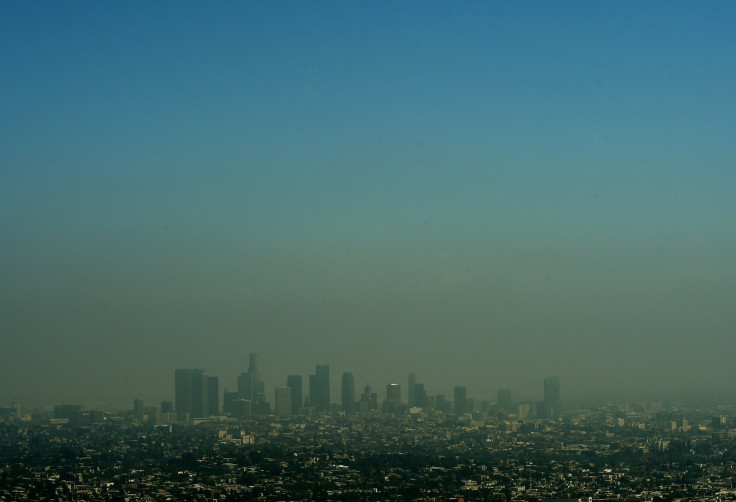Texas Attorney General Sues Obama Administration Over EPA Smog Rule

Texas has joined the fight to block the Obama administration's new limits on ozone. The state said Monday it is suing the Environmental Protection Agency (EPA) over the regulations, which will make it harder for factories and power plants to emit smog-forming pollution.
"My office will continue to defend our state from the EPA's harmful and overreaching regulations," Texas Attorney Gen. Ken Paxton said in a statement announcing the lawsuit. "Texas has proven that we can reduce ambient ozone concentrations without stifling growth."
Texas joins eight other states in challenging the new rule on ground-level ozone, which is linked to asthma and respiratory illnesses. The EPA on Oct. 1 tightened the existing cap on the highest ozone levels from 75 parts per billion to 70 parts per billion. Meeting the smog rule requires states to craft plans that slash pollution from industrial sources and vehicles.
Critics of the tighter limits, including Republican lawmakers and business groups, have argued the original rules were sufficient to protect public health without choking the economy. The opponents say the 70 parts-per-billion cap will force factories to close and result in steep penalties for local governments that can't comply with the rules.
Paxton's office said it sued the EPA on behalf of the Texas Department of Environmental Quality. Arizona, Arkansas, Kentucky, New Mexico, Oklahoma, North Dakota, Utah and Wisconsin have filed separate lawsuits against the new rule.
The U.S. Chamber of Commerce and National Association of Manufacturers said Dec. 23 they would also mount legal challenges to the ozone requirements. The two groups separately said they have petitioned the U.S. Court of Appeals for the District of Columbia for a review. Murray Energy Corp., a large U.S. coal company, is suing the EPA over both its ozone rules and the Clean Power Plan, finalized this year, which will curb carbon dioxide emissions from power plants.
The EPA has defended the new ozone limits as critical to Americans' health. Officials said the tougher cap will reduce people's exposure to harmful air pollution and result in billions of dollars of public health benefits, including fewer asthma attacks and emergency room visits.
"Our job is to set science-backed standards that protect the health of the American people," EPA Administrator Gina McCarthy said in an Oct. 1 statement. Setting tougher standards "is one of the most important measures we can take for improving public health."
Environmental groups expressed only weak praise for the new limits. The Sierra Club, Earthjustice and other green groups had urged the EPA to shrink the ozone cap to 60 parts per billion, arguing that anything above that limit still allows for dangerous levels of air pollution.
© Copyright IBTimes 2025. All rights reserved.





















